20155226《网络攻防》 实验4 恶意代码分析
20155226《网络攻防》 实验4 恶意代码分析
问题
(1) 如果在工作中怀疑一台主机上有恶意代码,但只是猜想,所有想监控下系统一天天的到底在干些什么。请设计下你想监控的操作有哪些,用什么方法来监控。
-
用TCPview,监听观察是否有localport为cifs的
-
用Schtasks,查看是否有可疑netstat连接
-
用sysmon,查看id为3的,是否有可以进程进行连接
(2)如果已经确定是某个程序或进程有问题,你有什么工具可以进一步得到它的哪些信息。
- systracer 可以得到,该进程运行后注册表,文件,进程的变化
系统运行监控
1.计划任务实现
- 先建立一个netstat20155226.txt文件,在文件中输入
date /t >> c:\netstat20155226.txt
time /t >> c:\netstat20155226.txt
netstat -bn >> c:\netstat20155226.txt
-
然后将此文件名改为netstat20155226.bat
-
再建立一个netstat20155226.txt,用来将记录的联网结果格式化输出到其中
-
将这两个文件剪切到c盘目录下
-
打开控制面板,搜索计划任务
-
选择创建任务,名称设为20155226,并选择使用最高权限运行
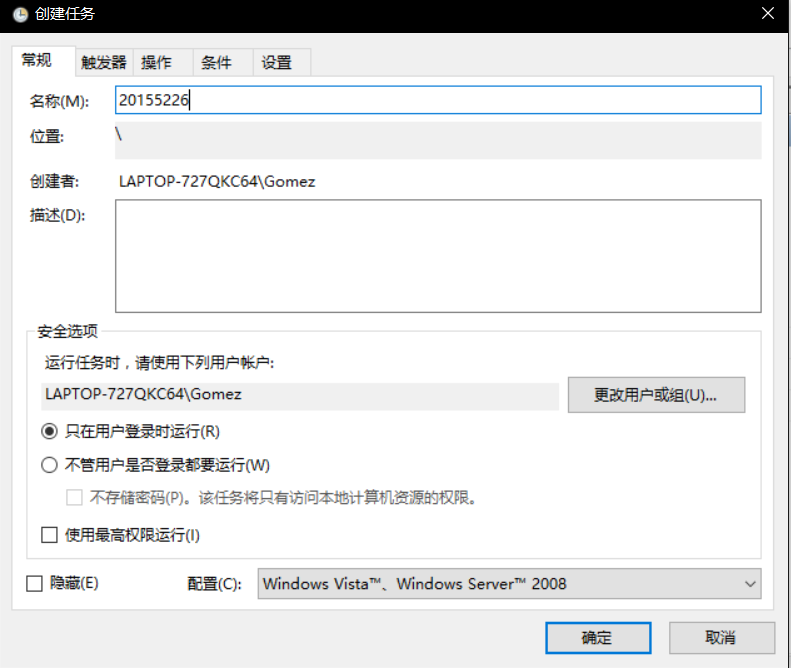
- 创建触发器
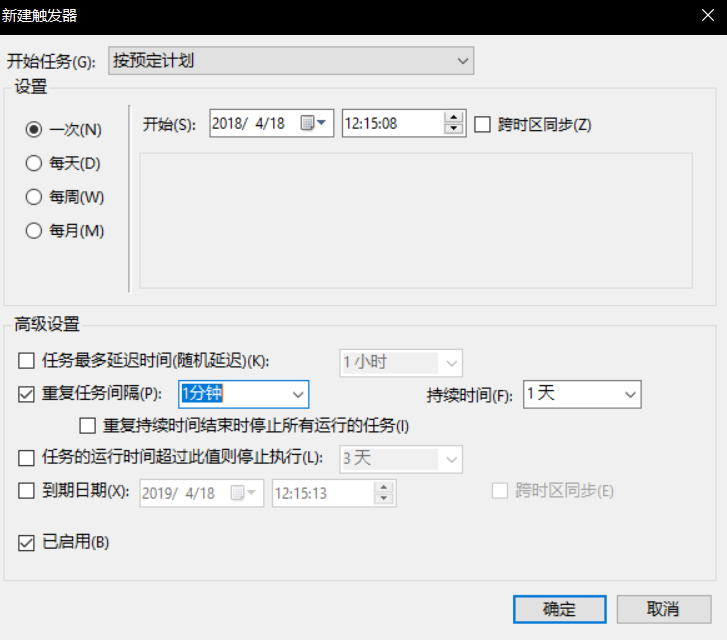
- 创建任务
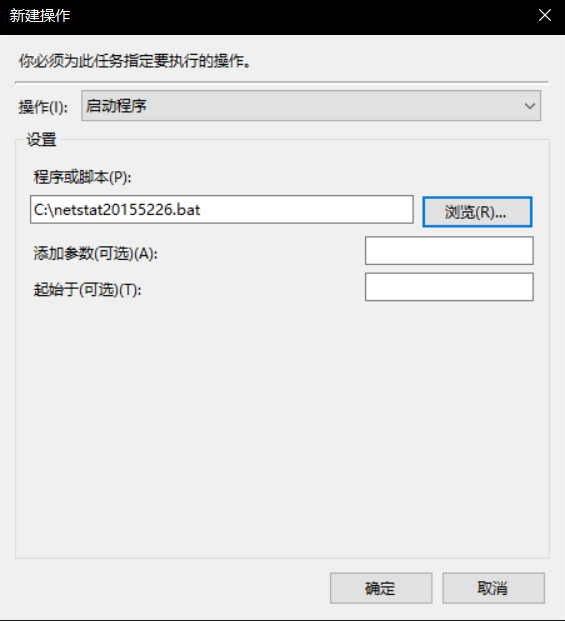
- 打开
netstat20155226.txt,得到如图:
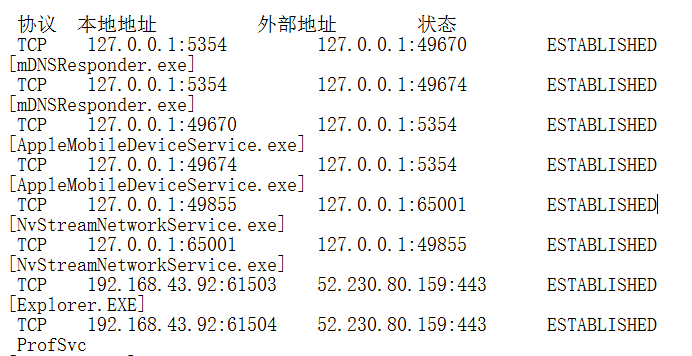
Sysinternals工具集
2.Sysmon
-
首先我们在https://docs.microsoft.com/zh-cn/sysinternals/下载sysmon
-
对其进行解压,在E盘创建20155226.txt文件在其中输入
<Sysmon schemaversion="4.00"> //4.00为你的版本号,如不知道版本号,可先运行下面的指令,根据所提示的错误进行更改
<!-- Capture all hashes -->
<HashAlgorithms>*</HashAlgorithms>
<EventFiltering>
<!-- Log all drivers except if the signature -->
<!-- contains Microsoft or Windows -->
<DriverLoad onmatch="exclude">
<Signature condition="contains">microsoft</Signature>
<Signature condition="contains">windows</Signature>
</DriverLoad>
<NetworkConnect onmatch="exclude">
<Image condition="end with">chrome.exe</Image>
<Image condition="end with">iexplorer.exe</Image>
<SourcePort condition="is">137</SourcePort>
</NetworkConnect>
<CreateRemoteThread onmatch="include">
<TargetImage condition="end with">explorer.exe</TargetImage>
<TargetImage condition="end with">svchost.exe</TargetImage>
<TargetImage condition="end with">winlogon.exe</TargetImage>
<SourceImage condition="end with">powershell.exe</SourceImage>
</CreateRemoteThread>
</EventFiltering>
</Sysmon>
- 然后,以管理员身份运行命令行,输入
Sysmon.exe -i 20155226.txt
如图:
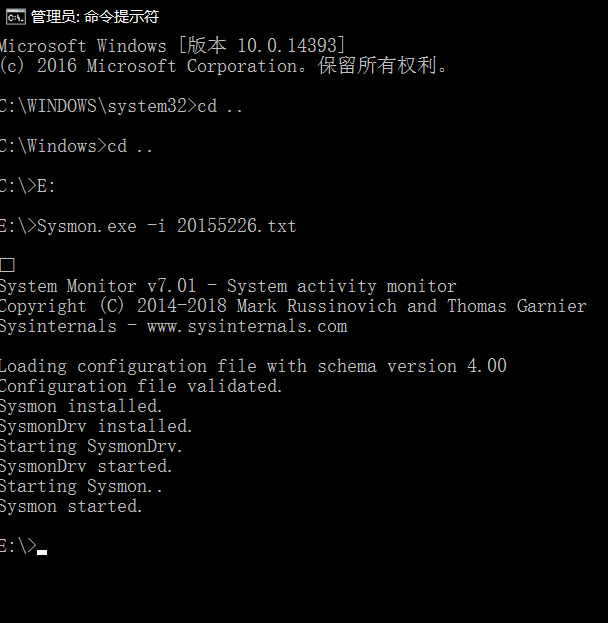
- 然后我们打开控制面板,搜索事件查看,打开事件查看器,sysmon的日志就在,应用程序和服务日志/Microsoft/Windows/Sysmon/Operational下
如图:
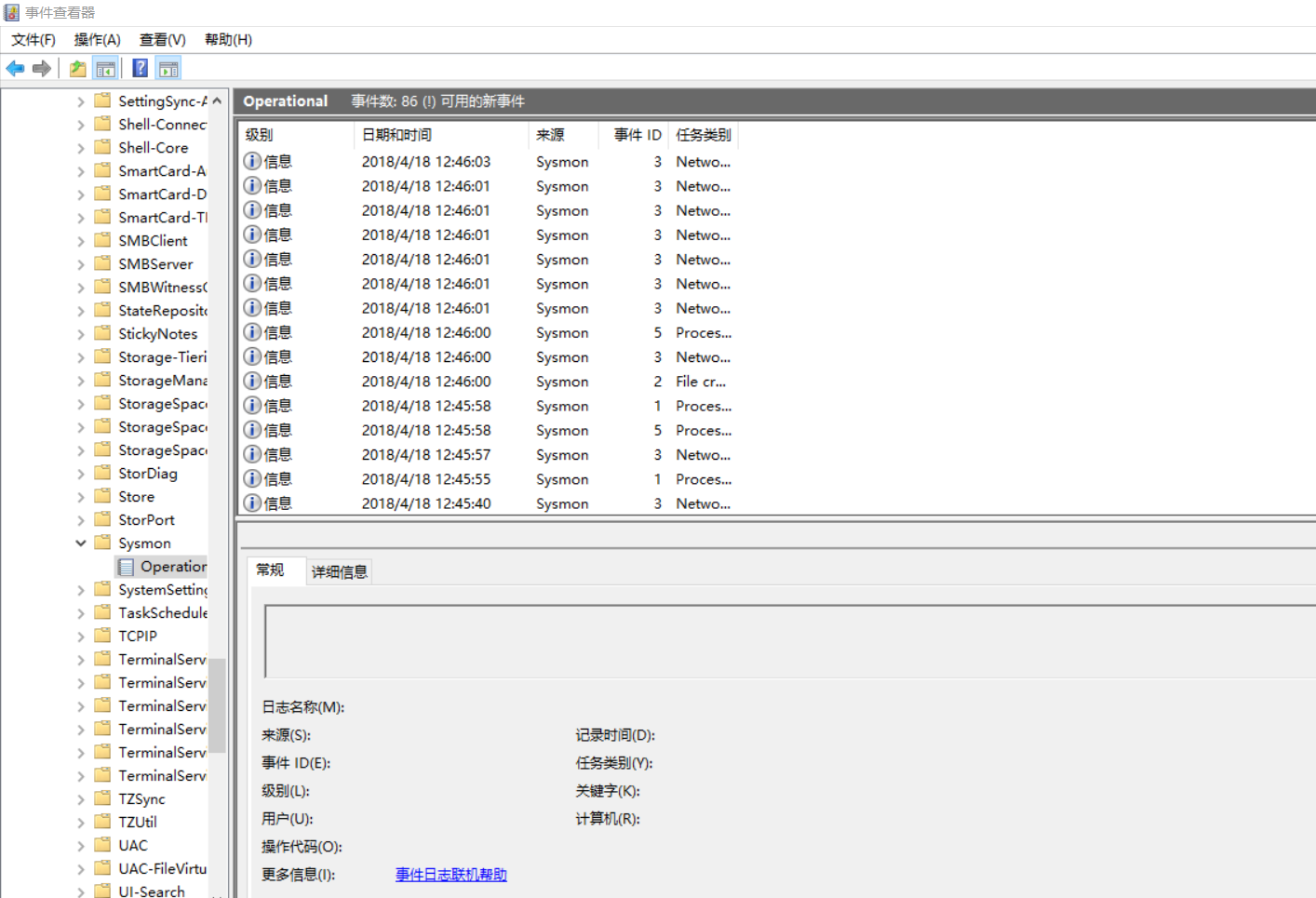
我们对日志进行查看
如图:

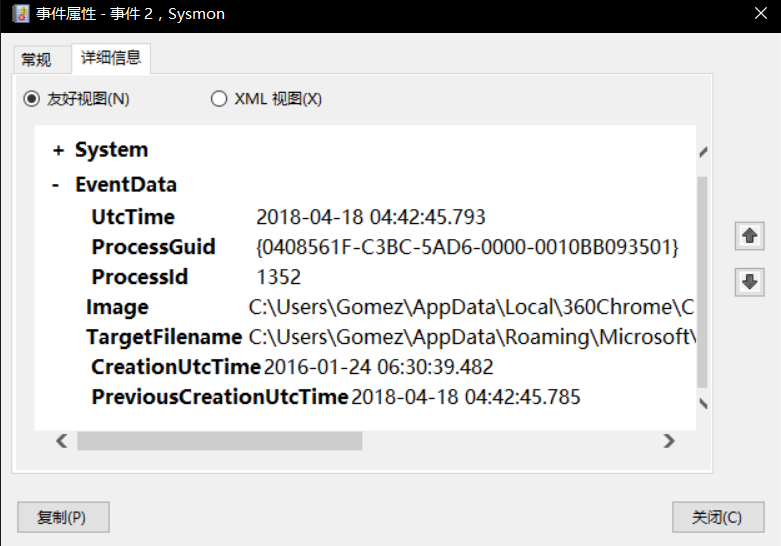


- 事件ID号类型可参考https://docs.microsoft.com/zh-cn/sysinternals/downloads/sysmon
如图:

-
接下来,我们主要对80,443,5226端口进行监视
-
利用下面的代码对2015526.txt进行更改,然后使用
sysmon.exe -c 20155226.txt,进行更新。
<Sysmon schemaversion="4.00">
<!-- Capture all hashes -->
<HashAlgorithms>*</HashAlgorithms>
<EventFiltering>
<!-- Log all drivers except if the signature -->
<!-- contains Microsoft or Windows -->
<DriverLoad onmatch="exclude">
<Signature condition="contains">microsoft</Signature>
<Signature condition="contains">windows</Signature>
</DriverLoad>
<NetworkConnect onmatch="exclude">
<Image condition="end with">SogouExplorer.exe</Image>
</NetworkConnect>
<NetworkConnect onmatch="include">
<DestinationPort condition="is">80</DestinationPort>
<DestinationPort condition="is">443</DestinationPort>
<DestinationPort condition="is">5226</DestinationPort>
</NetworkConnect>
<CreateRemoteThread onmatch="include">
<TargetImage condition="end with">explorer.exe</TargetImage>
<TargetImage condition="end with">svchost.exe</TargetImage>
<TargetImage condition="end with">winlogon.exe</TargetImage>
<SourceImage condition="end with">powershell.exe</SourceImage>
</CreateRemoteThread>
</EventFiltering>
</Sysmon>
如图:

- 然后我们来查看事件查看器,如图:

- thy52261.exe,利用tcp,进行network连接,目的端口为5226,资源端口为62803
Systracer
-
首先我们进行下载,安装
-
然后进行快照,我快照了2次,分别为
-
尝试回连
-
kali输入dir
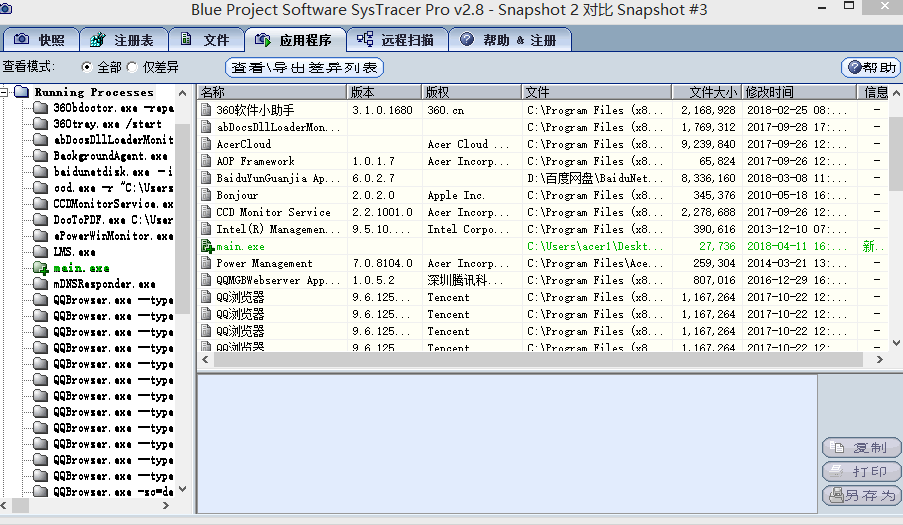
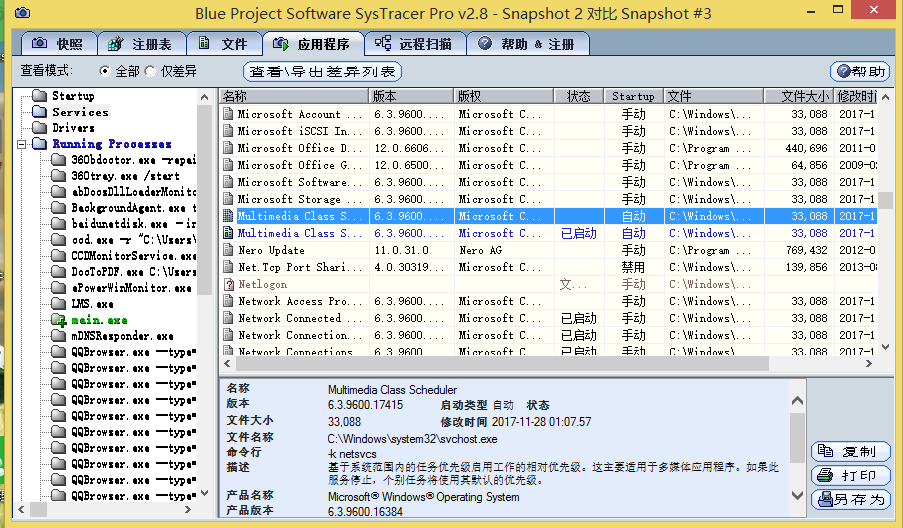

- 上图对比,发现main.exe在运行,并且新增了svchost服务。
使用virscan分析恶意软件
- 在virustotal网站查看上次后门软件的文件行为分析:
先让我们看一下详细报告:
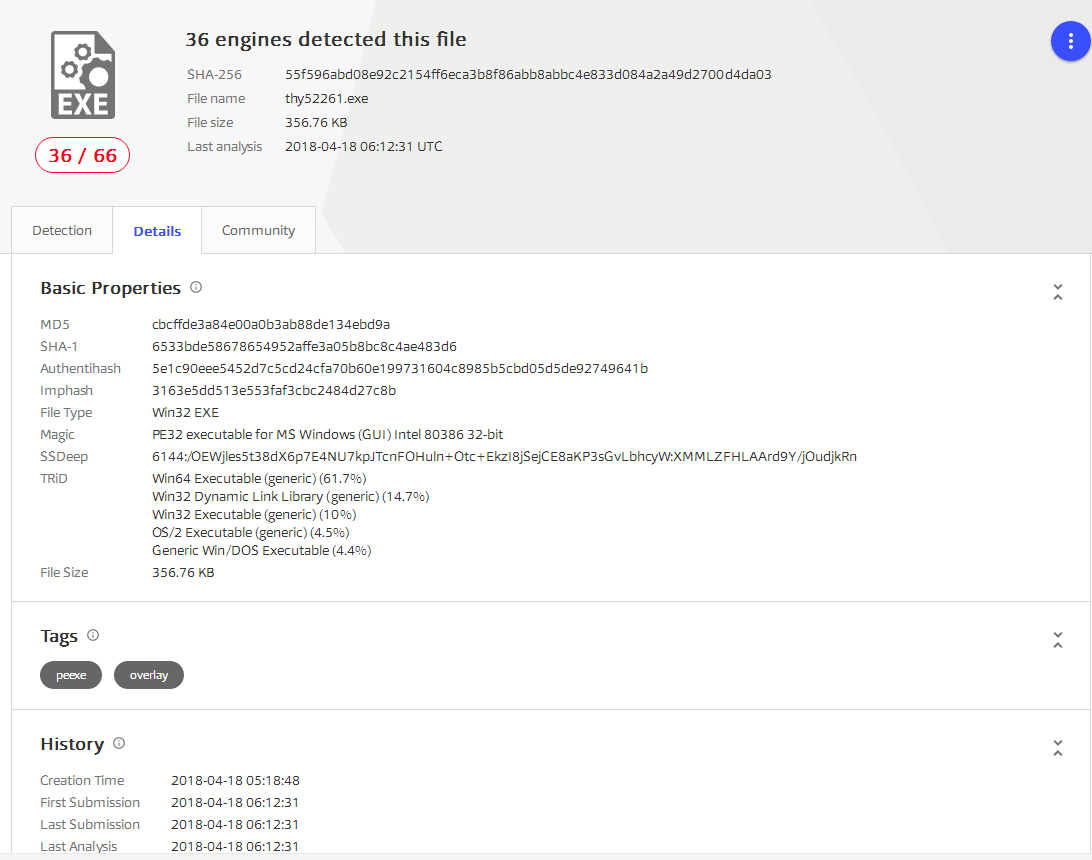
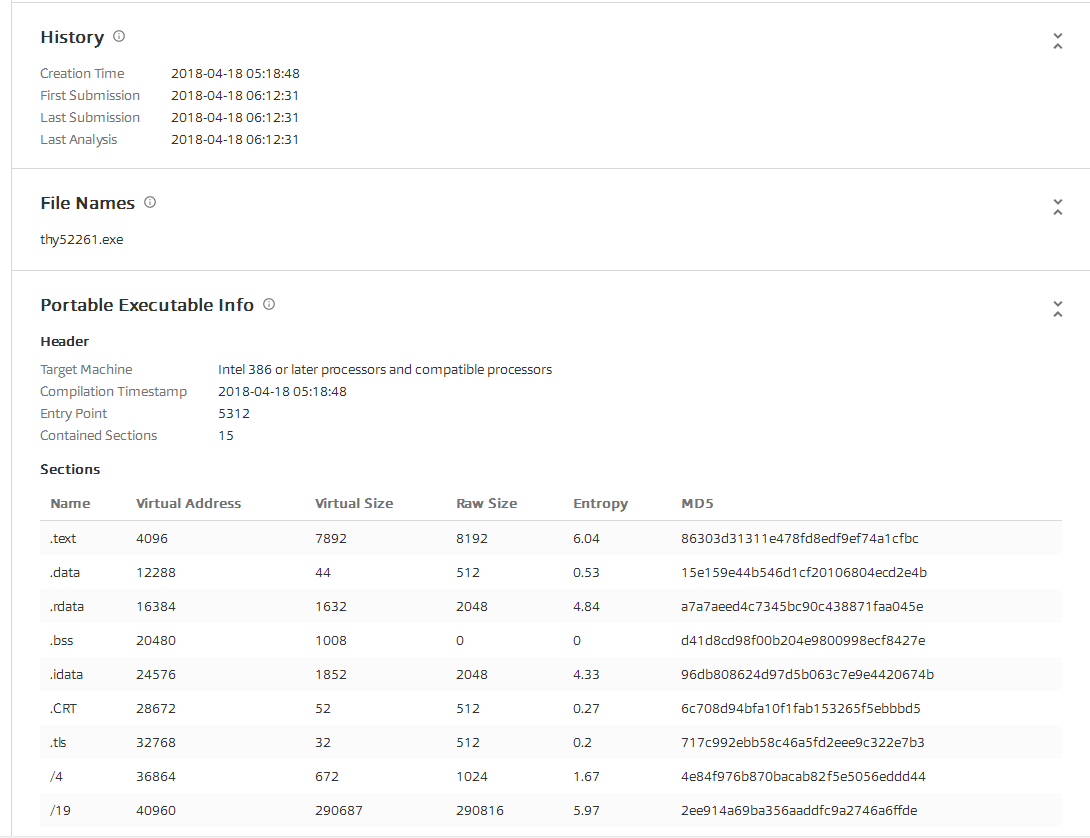
- 根据上图,可以看出这个程序是在后门不过的后门了,有第二张图可以发现,本程序使用了
ADVAPI32.dll、KERNEL32.dll、MSVCRT.dll、WS2_32.dll、WSOCK32.dll,这五个链接库,其中WS2_32.dll、WSOCK32.dll是比较熟悉的win上面编写SOCKET用的,这是用来回连使用的,而advapi32.dll是一个高级API应用程序接口服务库的一部分,包含的函数与对象的安全性,注册表的操控以及事件日志有关,从这句解释就可以看出,本后门程序的潜在的威胁,kernel32.dll是Windows 9x/Me中非常重要的32位动态链接库文件,属于内核级文件。它控制着系统的内存管理、数据的输入输出操作和中断处理,当Windows启动时,kernel32.dll就驻留在内存中特定的写保护区域,使别的程序无法占用这个内存区域。而msvcrt.dll是微软在windows操作系统中提供的C语言运行库执行文件(Microsoft Visual C Runtime Library),其中提供了printf,malloc,strcpy等C语言库函数的具体运行实现,并且为使用C/C++(Vc)编译的程序提供了初始化(如获取命令行参数)以及退出等功能,我们基本上每个C程序都会用到。
实验体会
- 恶意代码处处都有,分析起来也是个麻烦活,平时要小心呀!!



 浙公网安备 33010602011771号
浙公网安备 33010602011771号